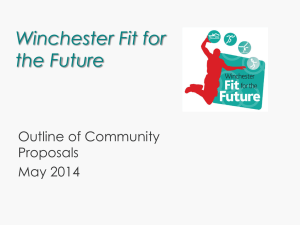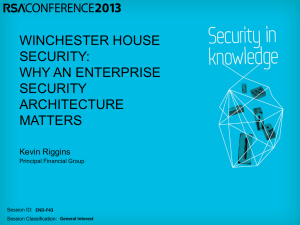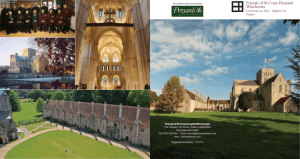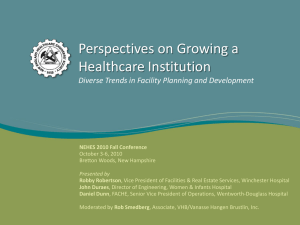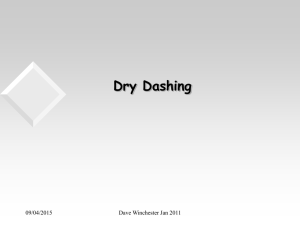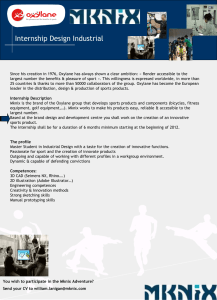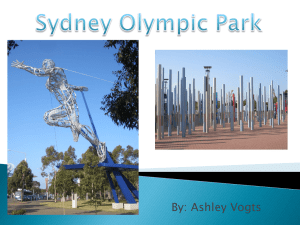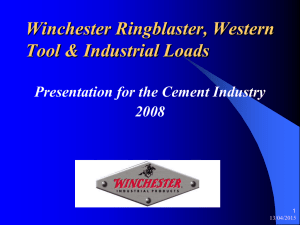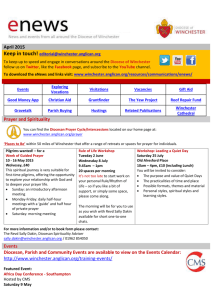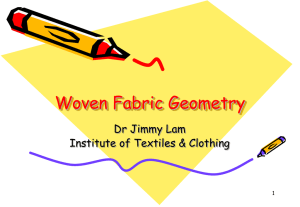Passive sports centre - winchester fit for the future
advertisement
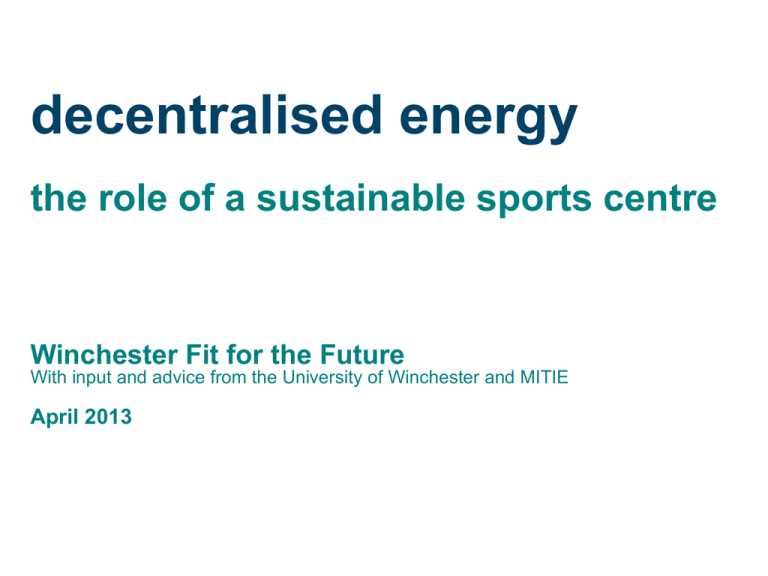
decentralised energy the role of a sustainable sports centre Winchester Fit for the Future With input and advice from the University of Winchester and MITIE April 2013 Summary • Winchester is considering the option to build a new multi-sports facility at Bar End • Through Winchester Fit For the Future, sports clubs, the community and the University are helping to shape and steer the development of this facility • There is a keen desire to make this a sustainable development • This slide deck sets out ideas about how to deliver a sustainable energy strategy Factors The factors that drive / create a sustainable facility are as follows: • Building location – Is it close to an existing or proposed low carbon infrastructure, such as a new housing, supermarket or energy development? • Utility connections – Are we going to use traditional electricity and gas or can we access low carbon (e.g. wind) generation? • Fabric – What is the proposed method of construction of the building? The materials / fabric choice have a dramatic effect on the life cycle costs and carbon emissions of a development. • Services – Can we minimise the amount of heating, hot water, cooling, lighting and power that we need? • Questions Management strategy – How will the services be managed? Can we develop a building ? that is truly simple to operate and maintain? Location / Utilities • The proposed site is located at Bar End • There are no major developments currently planned that are close to the site and which the site can link to • The sports facility will therefore be a catalyst for this area, rather than a recipient of benefit from other major developments in the area • There are no low carbon utilities for the site to connect to • The opportunity is therefore for this sports centre to become the blueprint for ecologically sound development at the Bar End site and across the broader area of Highcliffe / East Winchester Fabric • The most important aspect is the fabric of the building. • There is always a risk that people look at the initial cost and create a building which has a very low heat demand and that meets current building regulations but is almost uninhabitable as the building retains heat which cannot be used. • We need to create a structure that is thermally efficient but also thermally “wise” – so that we use the heat we need, and do not generate or retain that which is surplus to requirements. History has lessons we can learn from…. Questions ? Fabric • Winchester Cathedral can teach us many lessons • It is a heavyweight structure that maintains a relatively constant temperature all year round, by virtue of its mass • The effects of ambient temperature are ameliorated by the effects of this mass • These types of structures also last a long time, so life cycle costs are low Services • We need to keep the services strategy simple … • The technologies we need exist and are used extensively world-wide. We just need to collect them together in such a way as to maximise their use on this scheme. • There are good examples of such technologies being used in sports facilities, both in the UK and abroad • Good building design and the right services strategy can also support an effective management strategy – low maintenance, low input, efficient use of labour; so staff are where you want them to be, e.g. coaching or customer services, not changing lightbulbs or adjusting heating controls! Questions ? Services - continued • We can use the following technologies for heating and cooling: • Ground-air heat exchangers – these are pipes laid under the structure that use the mass of the earth to reduce heating and cooling demands of the building • Ground source systems – ground source systems can be created that capture energy from the ground and can be used to provide a source of chilled water for cooling (e.g. Gym systems) and low grade heat as a source for heat pumps • Heat pumps – these machines recover low grade energy and upgrade it to a high temperature using electricity. The efficiency of this technology has now been recognised by the government and a feed in tariff called the Renewable Heat Incentive (RHI) will incentivise and financially support the use of such technology. We would use three types of heat pumps on this development: Questions ? • Swimming pool unit, to dehumidify pool air and heat the pool • Space heating • Domestic hot water • Solar panels – photovoltaic panels would be used to generate electricity, and evacuated tube systems would be used to generate hot water Services - continued • Additional technologies would help reduce utilities costs and limit environmental impact: • Rain water harvesting • Low energy glazing • Sun tubes – we can use solar energy to create daylight within a totally concealed space. This would allow the creation of a building with a very low energy fabric structure, whilst still maintaining the link to natural light – so light enters the building during the day but has limited/zero effect on building temperature. Questions ? Examples • As advised earlier all the technologies mentioned have been utilised elsewhere. Here are some notable examples from the sports sector: • Beijing Science & Technology University gymnasium – daylight systems • Sunderland Aquatics centre – daylight systems • Kaohsiung football stadium, Taiwan – solar powered • Stuttgart sports hall – earth duct systems • As well as the above specific examples, there are many existing heat pump installations, and the forthcoming RHI tariffs will further encourage the use of such technologies as their costs will be effectively funded by the tariffs. Questions ? Comment • Projects in the UK have always tended to be viewed capital first and annual cost second, so capital build targets are met but a legacy of inefficiency and cost is left for the users / operators • We have an opportunity to combine the know how of many existing businesses and technologies to create a building that will be truly cost efficient over its life time, not only in pounds and pence but also in carbon terms • We seek to create a building whose simplicity will deliver life time benefits for all and that will become a paragon of design excellence for the developments that take place in this area of Winchester Questions ?

